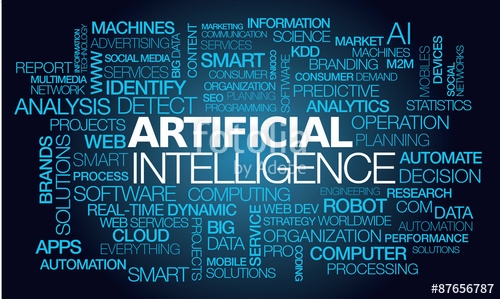Marketers Will Have To Seduce, Convince AI
Marketers Will Have To Seduce, Convince AI
by Alexandre Thomas , Op-Ed Contributor, September 13, 2017
There’s no doubting the importance of artificial intelligence cementing itself in the zeitgeist. AI already has profoundly transformed the marketing landscape.

Targeting will be more accurate, messages more relevant and CRM more efficient. A significant number of tasks will be automatized in an intelligent way, and humans will be able to focus on operations that have added value, at least until the machines truly take control.
However, there is one fundamental point about AI that few have considered. AI is going to become an increasingly important part of people’s daily lives, will become the go-to solution for a lot of our questions and will likely disrupt our decision-making process.
The Alexas, Siris or Watsons of this world have a purpose to support us, always ready to be a mobilized, helping hand with any tasks and capable of answering the most urgent of inquiries. This will revolutionize the decisions we make and the way we purchase goods or services in a not too distant future. It’s reasonable to assume the consideration phase will be dangerously reduced to a congruent share, as the actual choices will be subcontracted to machines that perfectly know us, our tastes and our needs.
This will have a very concrete impact for brands: soon, it will be as necessary to promote our offers to AI as we do to humans today. We’ll have to market to AI, fast.
In this new relationship with machines, brands will need to consider two main options or criteria:
- Recommendation engines are not always as personalized as we wish them to be, and it’s likely that the AI in home assistants are subjected to a certain amount of commercial constraints. It is safe to assume these kinds of partnership mechanisms will become even more targeted and sophisticated, and we will have to elaborate increasingly complex partnerships to be promoted to the right audience. This will also further increase the power of the developers of these assistants.
- In a world where the consideration phase is subcontracted and practically annihilated, machines, just as humans, go for the obvious and the category’s reference becomes the de facto standard. It’s not a coincidence if today, Dash buttons sold by Amazon are associated not to a product, but to a very specific brand. Enjoying a better top-of-mind status, the iconic brand will be better prepared to thrive beyond what iconicity already achieves today.
There’s a slight bump in the road, though. Among design’s many components at our disposal, whether visual or haptic, none will be truly mastered nor understood by AI in the upcoming years. We’ve only just reached the infancy of shape recognition. Whether that shape is pleasing to the eyes or not is a different matter altogether. The same applies to texture, olfaction, sound, color and everything that can possibly seduce or convince consumers to try a product.
The brand builder’s arsenal suddenly seems rather restrained. What kind of messages could best convince AI? What tone of voice? Can humor be learned by a neural network? What emotions can be conveyed?
These notions will need to be considered soon, because AI may very well become the influencer, the wallet and key to every household.
MediaPost.com: Search Marketing Daily
(22)





